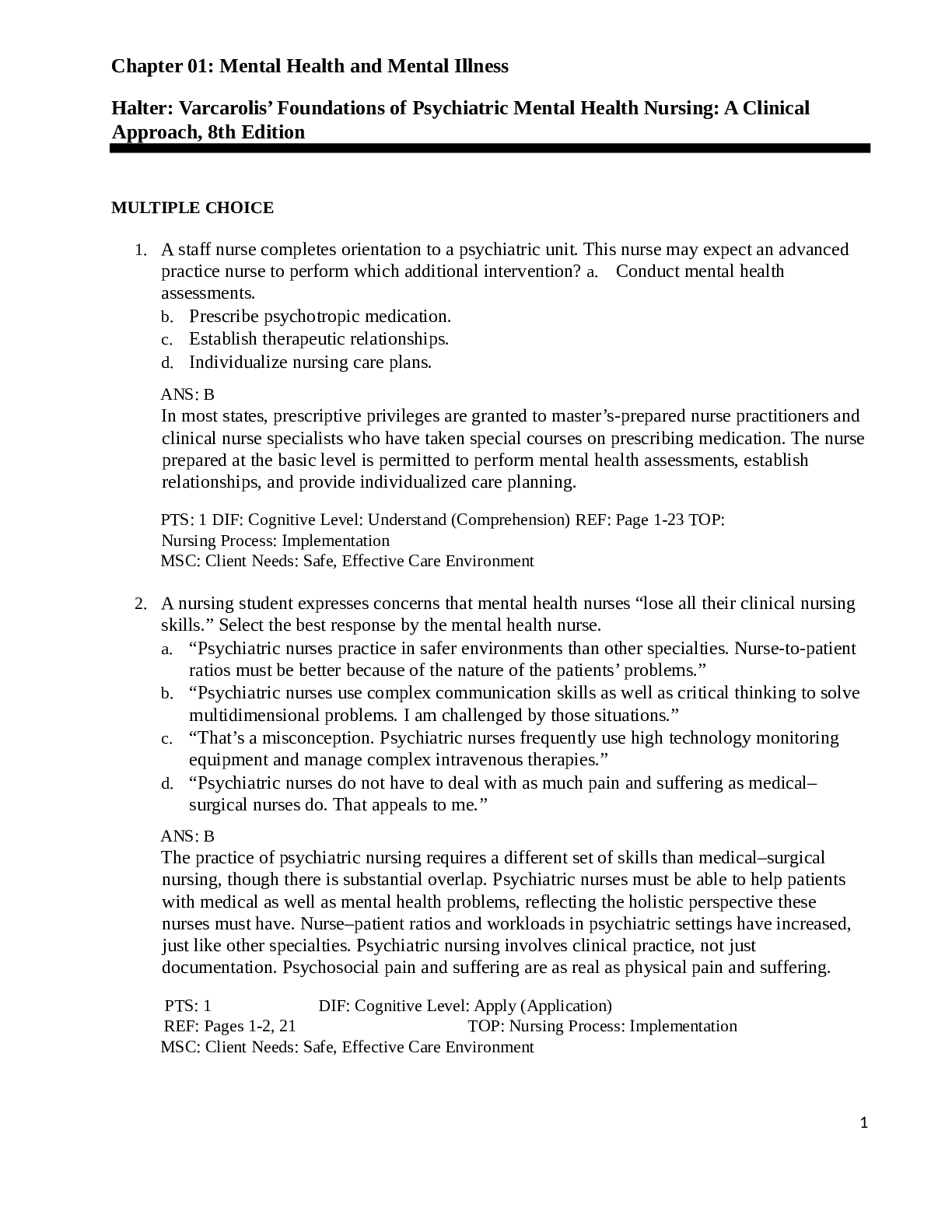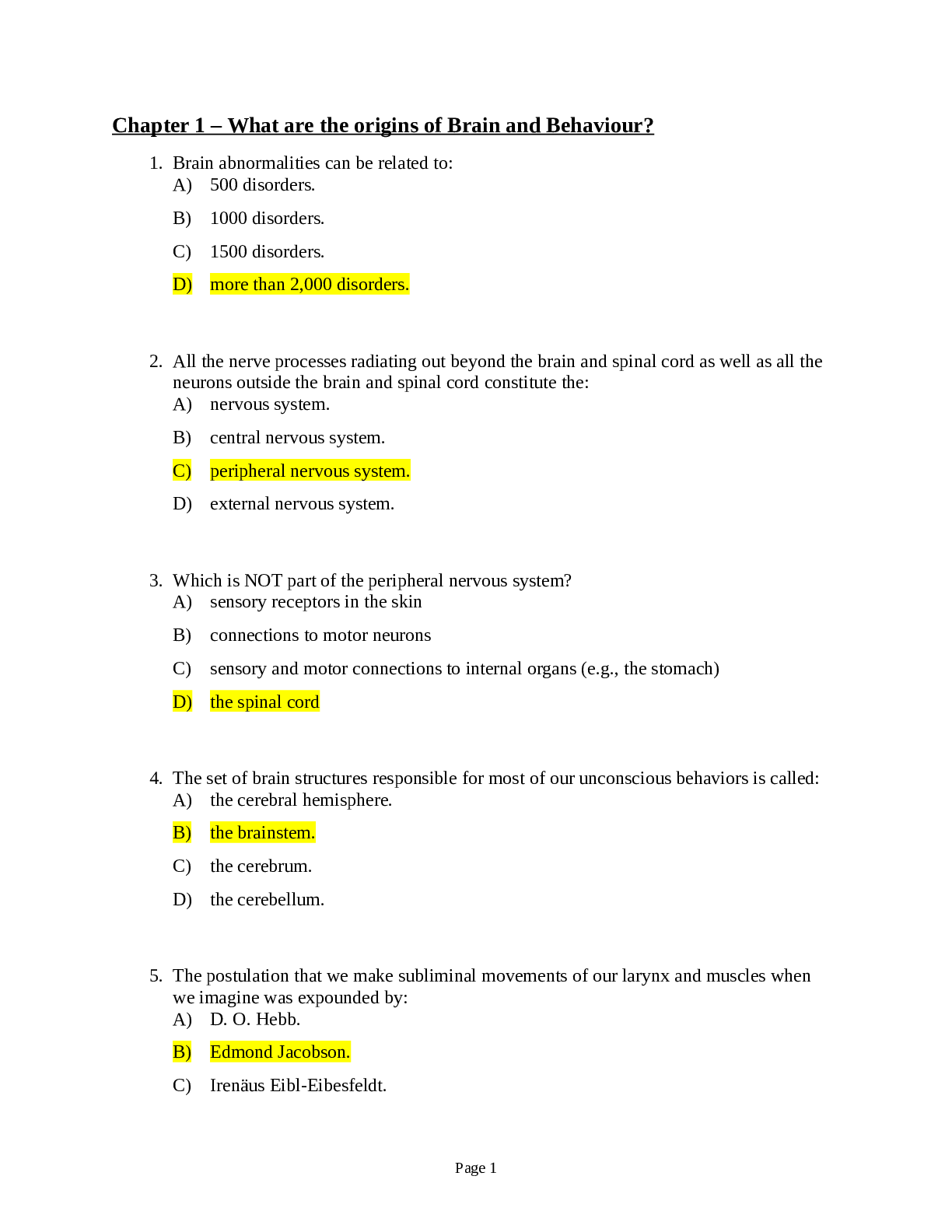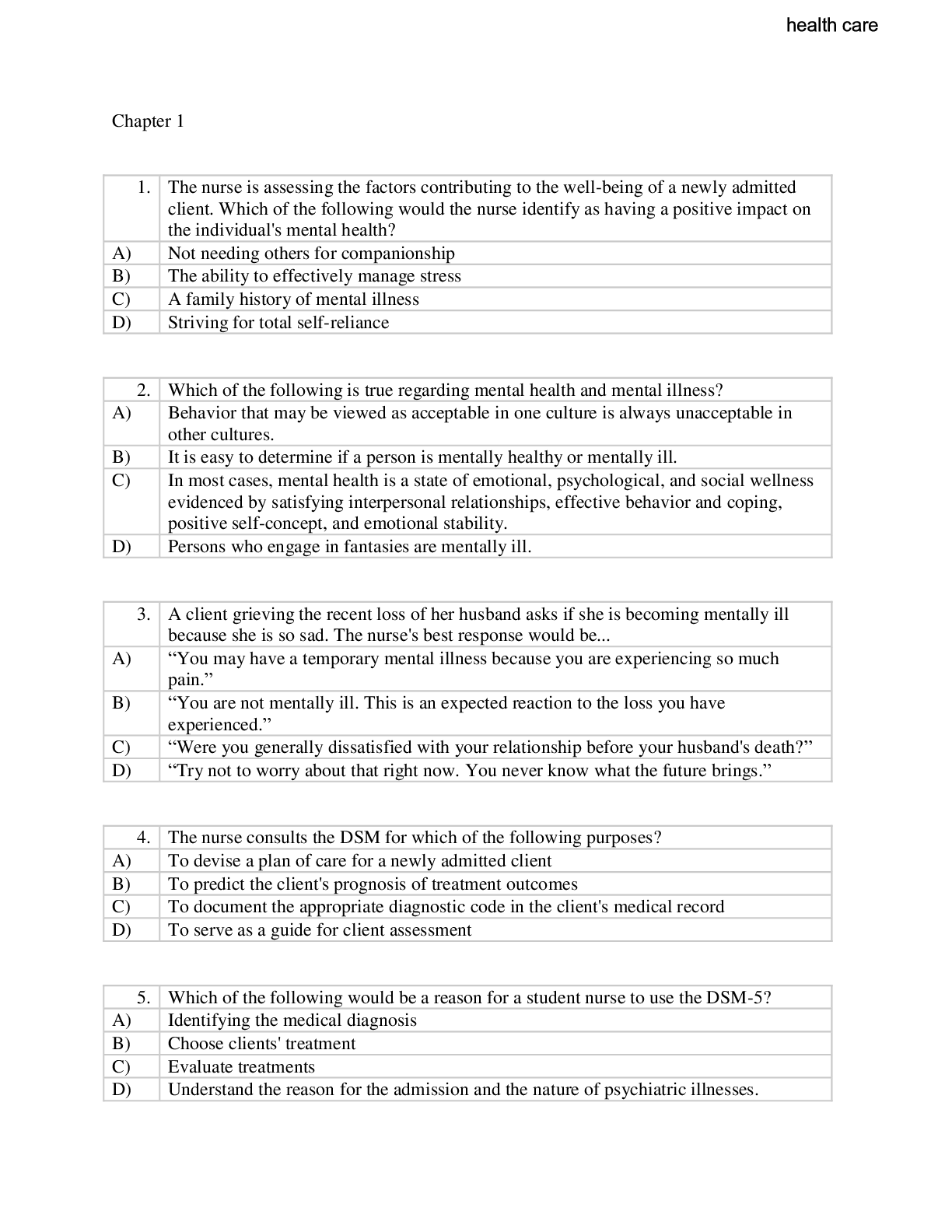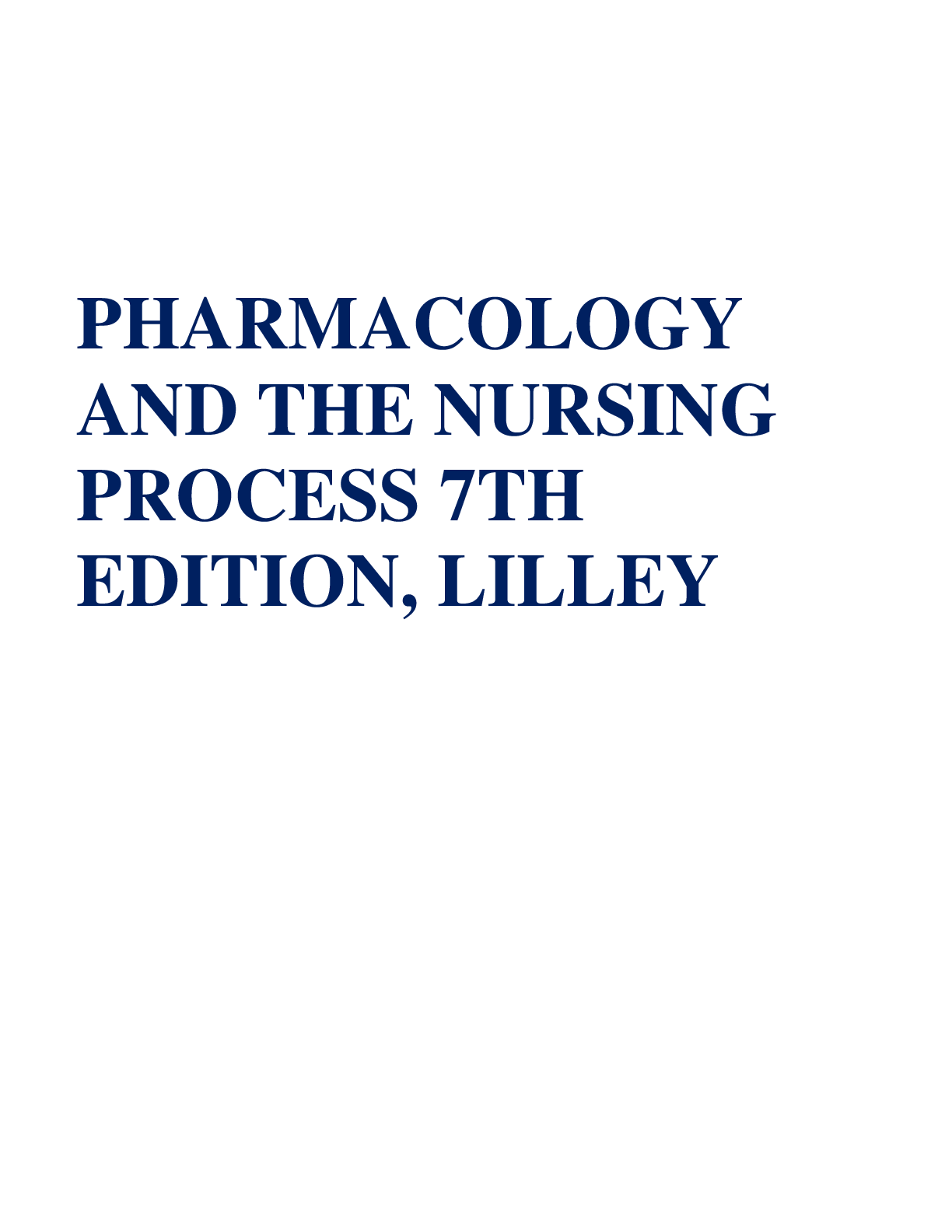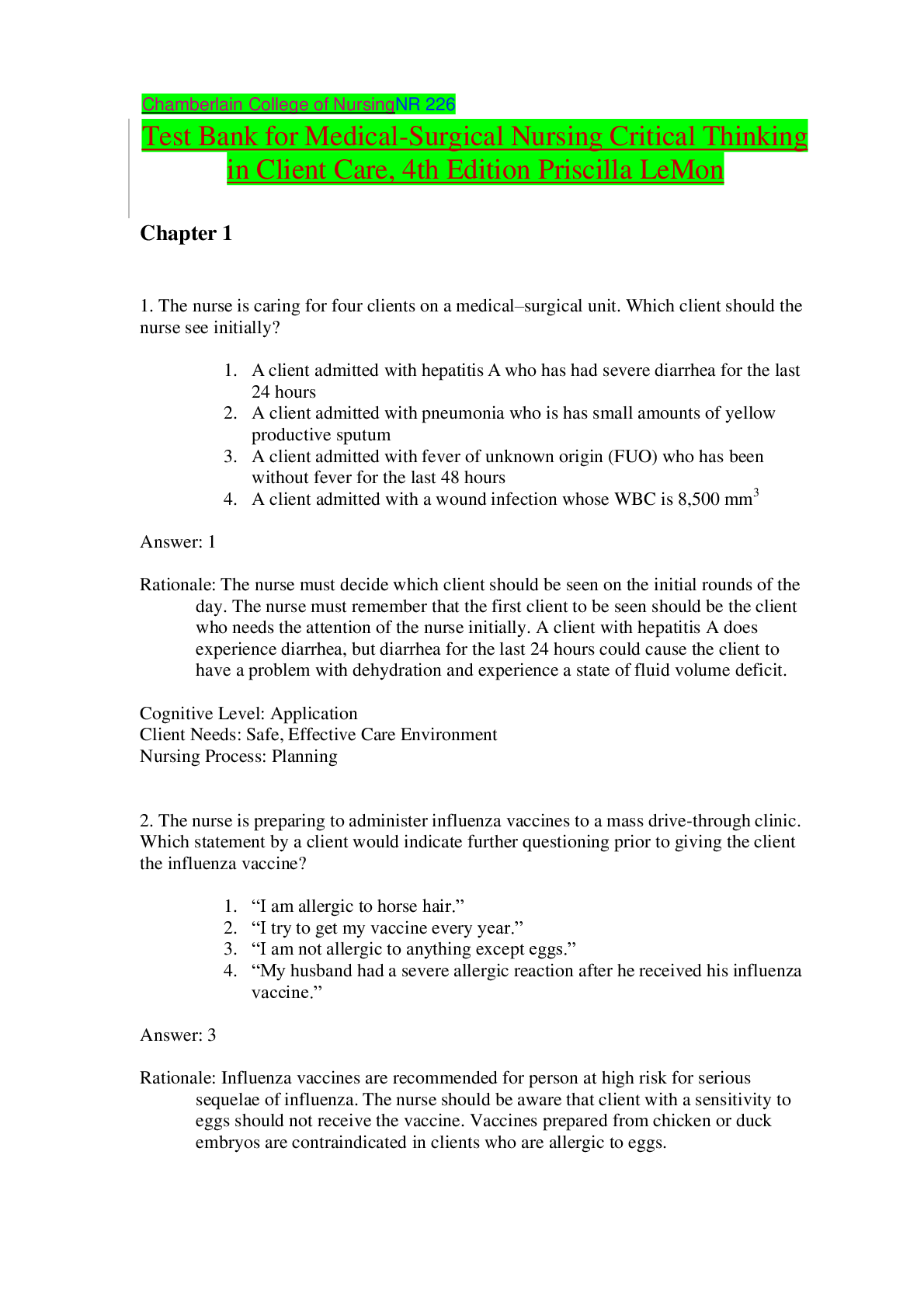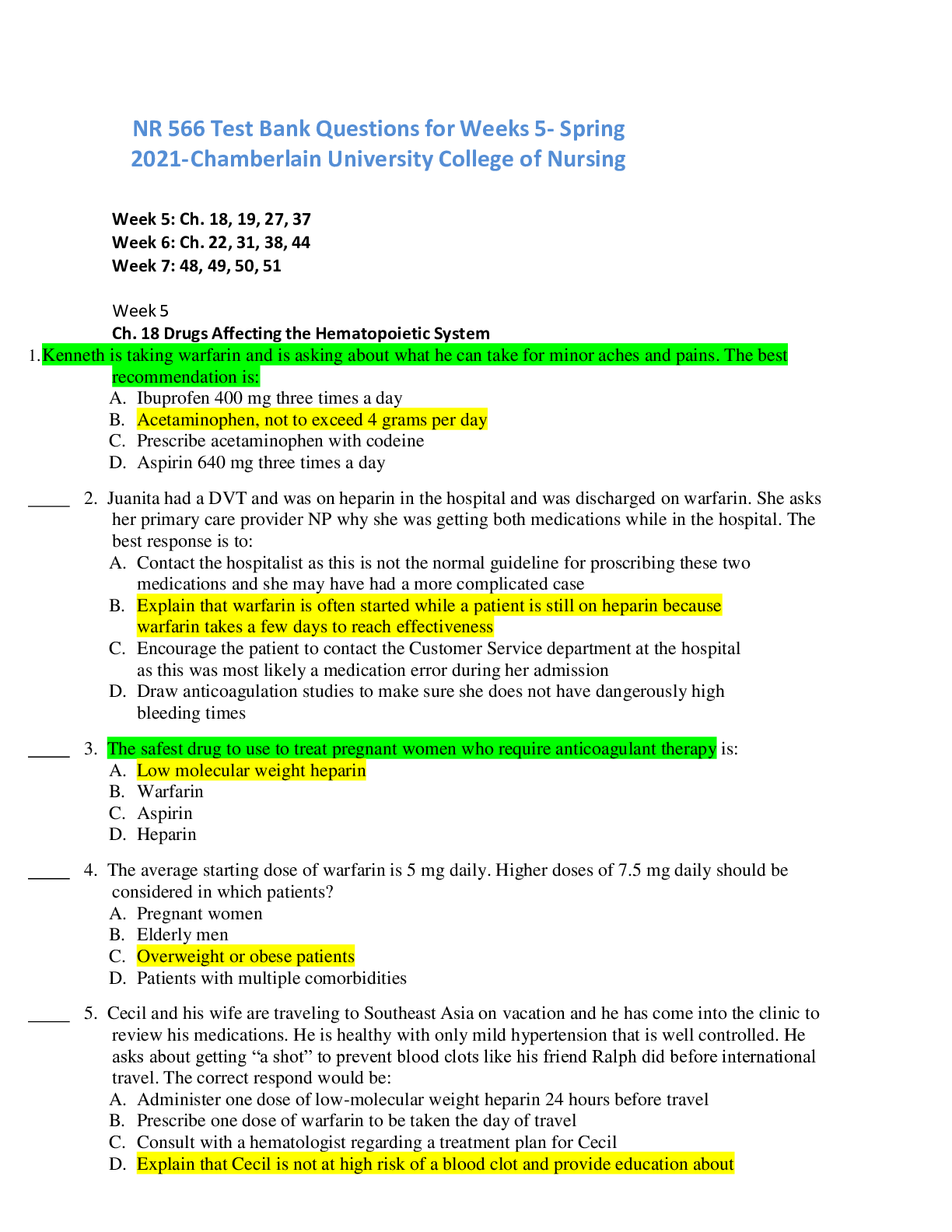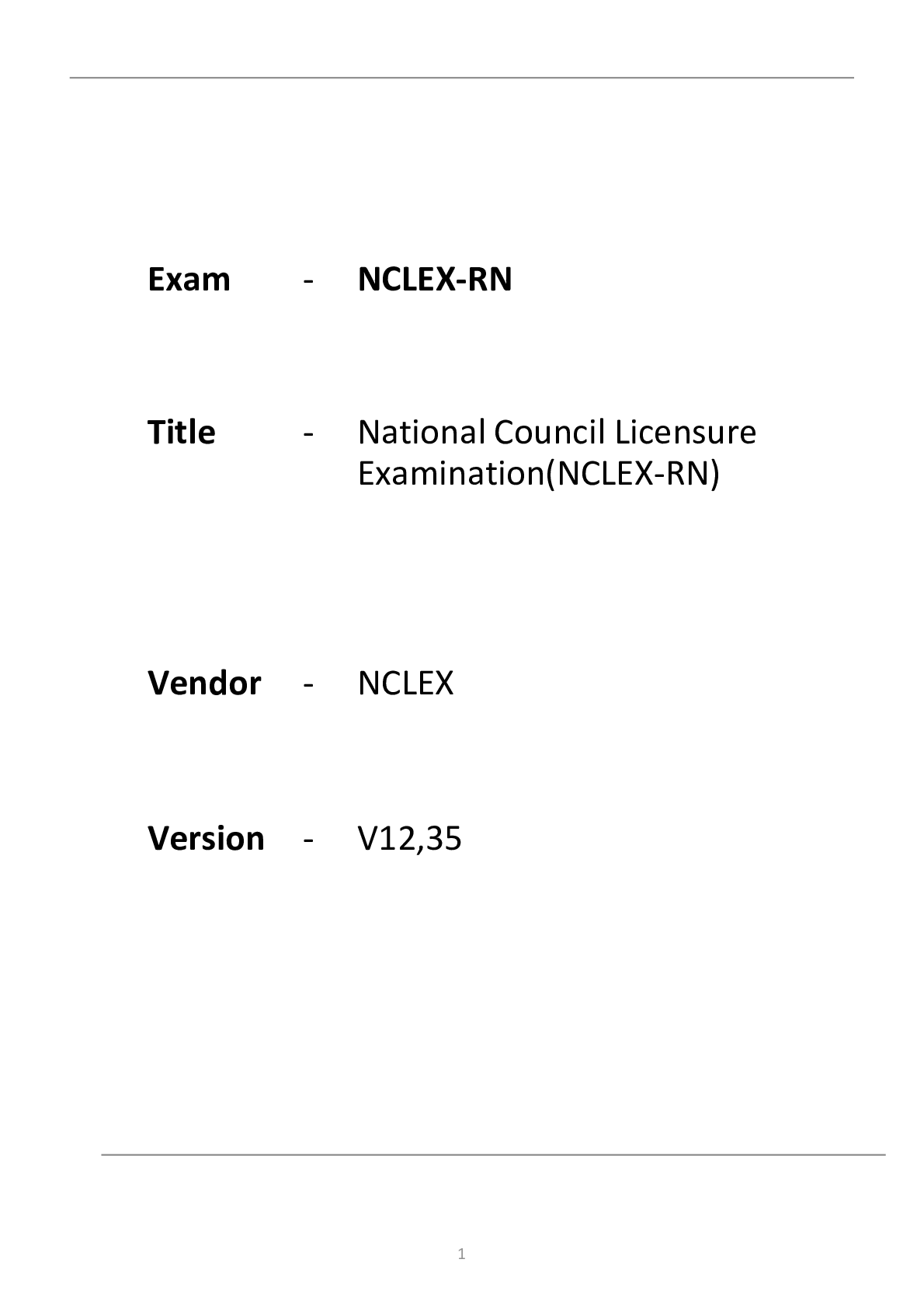*NURSING > TEST BANKS > Chamberlain University College of NursingNR 566NR 566 Test Bank Questions for Weeks 5.+A GRADED (All)
Chamberlain University College of NursingNR 566NR 566 Test Bank Questions for Weeks 5.+A GRADED
Document Content and Description Below
NR 566 Test Bank Questions for Weeks 5-7 Week 5: Ch. 18, 19, 27, 37 Week 6: Ch. 22, 31, 38, 44 Week 7: 48, 49, 50, 51 Week 5 Ch. 18 Drugs Affecting the Hematopoietic System 1.Kenneth is taking w... arfarin and is asking about what he can take for minor aches and pains. The best recommendation is: A. Ibuprofen 400 mg three times a day B. Acetaminophen, not to exceed 4 grams per day C. Prescribe acetaminophen with codeine D. Aspirin 640 mg three times a day ____ 2. Juanita had a DVT and was on heparin in the hospital and was discharged on warfarin. She asks her primary care provider NP why she was getting both medications while in the hospital. The best response is to: A. Contact the hospitalist as this is not the normal guideline for proscribing these two medications and she may have had a more complicated case B. Explain that warfarin is often started while a patient is still on heparin because warfarin takes a few days to reach effectiveness C. Encourage the patient to contact the Customer Service department at the hospital as this was most likely a medication error during her admission D. Draw anticoagulation studies to make sure she does not have dangerously high bleeding times ____ 3. The safest drug to use to treat pregnant women who require anticoagulant therapy is: A. Low molecular weight heparin B. Warfarin C. Aspirin D. Heparin ____ 4. The average starting dose of warfarin is 5 mg daily. Higher doses of 7.5 mg daily should be considered in which patients? A. Pregnant women B. Elderly men C. Overweight or obese patients D. Patients with multiple comorbidities ____ 5. Cecil and his wife are traveling to Southeast Asia on vacation and he has come into the clinic to review his medications. He is healthy with only mild hypertension that is well controlled. He asks about getting “a shot” to prevent blood clots like his friend Ralph did before international travel. The correct respond would be: A. Administer one dose of low-molecular weight heparin 24 hours before travel B. Prescribe one dose of warfarin to be taken the day of travel C. Consult with a hematologist regarding a treatment plan for Cecil D. Explain that Cecil is not at high risk of a blood clot and provide education about how to prevent blood clots while traveling ____ 6. Robert, age 51 years, has been told by his primary care provider (PCP) to take an aspirin a day. Why would this be recommended? A. He has arthritis and this will help with the inflammation and pain. B. Aspirin has anti-platelet activity and prevents clots that cause heart attacks. C. Aspirin acidifies the urine and he needs this for prostrate health. D. He has a history of GI bleed, and one aspirin a day is a safe dose. ____ 7. Sally has been prescribed aspirin 320 mg per day for her atrial fibrillation. She also takes aspirin four or more times a day for arthritis pain. What are the symptoms of aspirin toxicity she would need to be evaluated for: A. Tinnitus B. Diarrhea C. Hearing loss D. Photosensitivity ____ 8. Patient education when prescribing clopidogrel includes: A. Do not take any herbal products without discussing with the provider B. Monitor urine output closely and contact the provider if it decreases C. Clopidogrel can be constipating, use a stool softener if needed D. The patient will need regular anticoagulant studies while on clopidogrel ____ 9. For patients taking warfarin INRs are best drawn: A. Monthly throughout therapy B. Three times a week throughout therapy C. Two hours after the last dose of warfarin to get an accurate peak level D. In the morning if the patient takes their warfarin at night ____ 10. Patients receiving heparin therapy require monitoring of: A. Platelets every 2 to 3 days for thrombocytopenia that may occur on Day 4 of therapy B. Electrolytes for elevated potassium levels in the first 24 hours of therapy C. INR throughout therapy to keep in the range around 2.0 D. Blood pressure for hypertension that may occur in the first 2 days of treatment ____ 11. The routine monitoring recommended for low molecular weight heparin is: A. INR every 2 days until stable then weekly B. aPTT every week while on therapy C. Factor Xa levels if patient is pregnant D. White blood cell count every 2 weeks ____ 12. When writing a prescription for warfarin it is common to write ____ on the prescription. A. OK to substitute for generic B. The brand name of warfarin and Do Not Substitute C. PRN refills D. Refills for 1 year [Show More]
Last updated: 2 years ago
Preview 1 out of 25 pages

Buy this document to get the full access instantly
Instant Download Access after purchase
Buy NowInstant download
We Accept:

Reviews( 0 )
$20.00
Can't find what you want? Try our AI powered Search
Document information
Connected school, study & course
About the document
Uploaded On
Sep 27, 2021
Number of pages
25
Written in
Additional information
This document has been written for:
Uploaded
Sep 27, 2021
Downloads
0
Views
462







